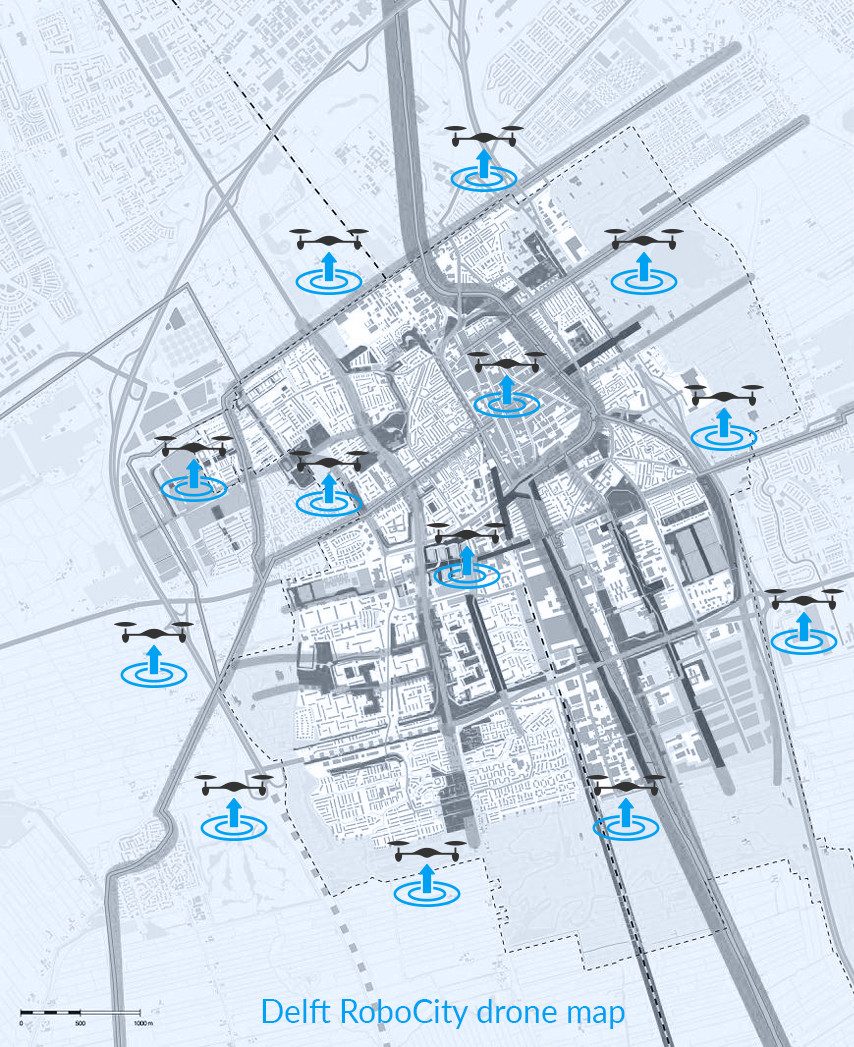
Lucas Van Oostrum is a man who embraces big ideas. A serial entrepreneur and drone evangelist, Van Oostrum co-founded DAR – an ecosystem of startups, researchers, and drone professionals – last year, with one broad and awesome goal for drone technology. “Our goal is to take the human out of the loop entirely,” he tells DRONELIFE matter-of-factly. “That’s the only way the drone industry is scalable.”
Van Oostrum points out that while current drone technology provides many benefits to industry, it doesn’t go far enough: while drones can obtain aerial information, data must still be processed by people, which can be slow and laborious. He sees a world where drones are fully autonomous: able to deliver data and services without human interaction.
And within the next year, the organization says, they will begin to test this technology in the city of Delft.
The choice of city is no accident. Delft has established itself as the center of the RoboValley ecosystem, a deliberate plan by the area to create an innovation hub in the robotics industry. The University of Delft has over 200 robotics researchers – second only to MIT in the world. RoboValley has been successful as an idea; engaging in a cooperative relationship with Dutch aviation authorities and making use of the nearby Valkenburg test site RoboValley has been able to attract new innovators and investors. “Because we’re located in Delft, and Delft wants to be a focus for the industry, they are leaning more and more towards less regulation for innovation,” Van Oostrum tells DRONELIFE.
Now, Delft will become the first RoboCity; maybe providing a model for what the world will look like if DAR’s vision for the future becomes reality. The map above gives a visual representation of the concept: “DAR will begin by deploying deploy drone docking stations throughout the Delft region that will support a network of autonomous drones, in the same way that cell towers provide coverage for our phones,” a company press release explains. “The docking stations will contain sensors that monitor the weather and flying conditions for drones before they begin flights, as well as drones’ diagnostics once they are in the air.”
With effective security controls in place to make sure that only the appropriate user receives the appropriate data, DAR says that its projects will benefit end-users across industries. The system may provide real-time insights on crop health, construction planning, water management, and more: all with the efficiency and cost benefits that only an entirely autonomous system can provide. And the data will be available to anyone: “It’s an inclusion model,” he says. “Everyone is allowed to join.”
The drones themselves, Van Oostrum says, will be “very light, very cheap. You should be actually able to just give away the drone,” he explains; the value will be in the data provided.
A city covered by small drone docking stations – keep one in your garden and take care of it for the good of the community – and a network of autonomous drones is a huge concept. Providing a vast quantity of effective data across industries to make them all successful is a huge concept. But so was the idea of cell phone coverage across the globe, or a vast network of information available to anyone via their own home computer. As the drone industry develops, the broadest – and most disruptive – ideas may offer the biggest benefits; this one is worth watching.
Miriam McNabb is the Editor-in-Chief of DRONELIFE and CEO of JobForDrones, a professional drone services marketplace, and a fascinated observer of the emerging drone industry and the regulatory environment for drones. Miriam has penned over 3,000 articles focused on the commercial drone space and is an international speaker and recognized figure in the industry. Miriam has a degree from the University of Chicago and over 20 years of experience in high tech sales and marketing for new technologies.
For drone industry consulting or writing, Email Miriam.
TWITTER:@spaldingbarker
Subscribe to DroneLife here.